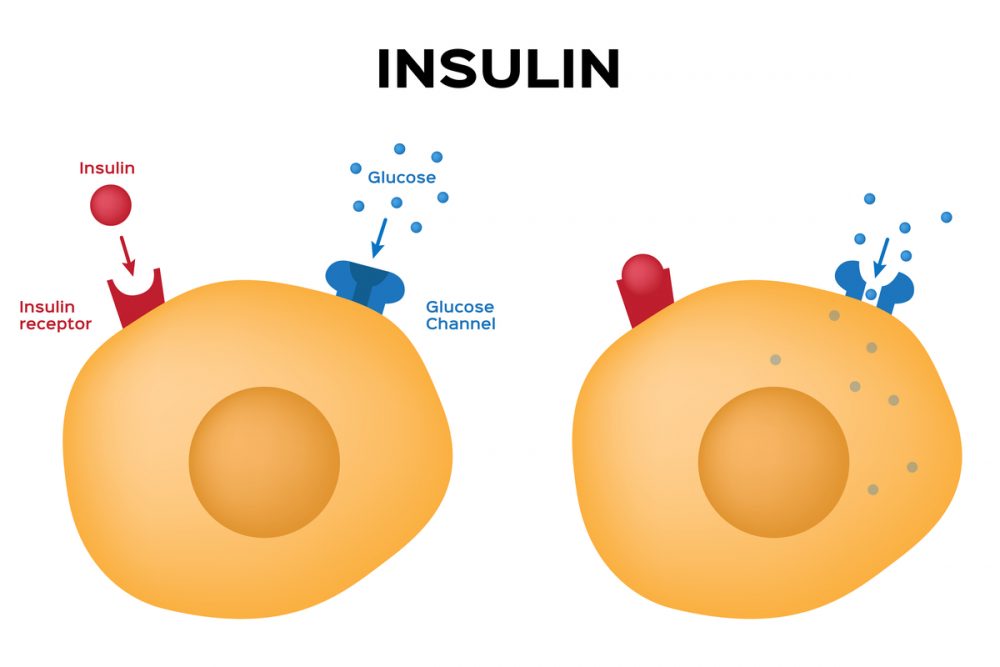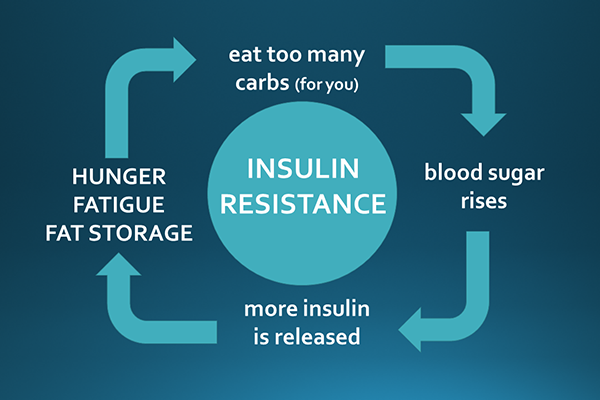Did you know that 88% of Americans are estimated to have some degree of insulin resistance? It’s a startling statistic, and if you’re wondering whether it applies to you, you’re not alone. Insulin resistance is becoming increasingly prevalent, rising sharply since the 1970s, and it continues to grow unchecked.
@thenewlifechannel #greenscreen ♬ original sound – The New Life Channel
The good news? Insulin resistance can be identified, managed, and often reversed. Let’s dive into what insulin resistance is, the key markers to watch out for, and how you can take steps to regain control of your health.
What Is Insulin Resistance?

Insulin is a hormone that helps regulate blood sugar levels by signaling your cells to absorb glucose for energy. When you’re insulin resistant, your cells stop responding effectively to insulin, forcing your pancreas to produce more and more insulin to compensate.
Over time, this condition can lead to higher blood sugar levels, weight gain, and an increased risk of chronic illnesses like type 2 diabetes, heart disease, and more.
5 Common Markers of Insulin Resistance

While insulin resistance can manifest in various ways, here are some of the most common signs to look out for:
1. High Blood Pressure (Hypertension)
One of the earliest and most noticeable markers of insulin resistance is high blood pressure. Hypertension is often reversible when the underlying insulin resistance is addressed.
2. Infertility
Insulin resistance affects hormonal balance, leading to reproductive issues in both men and women:
- In Women: It’s commonly linked to Polycystic Ovarian Syndrome (PCOS), a condition that causes irregular periods, ovarian cysts, and fertility challenges.
- In Men: Insulin resistance is often associated with erectile dysfunction, which can interfere with intimacy and overall quality of life.
Both conditions come with their own set of symptoms but can often improve with targeted lifestyle changes.
3. Family History of Type 2 Diabetes
If type 2 diabetes runs in your family, your risk of developing insulin resistance increases significantly. However, genetics doesn’t have to dictate your future. Taking proactive steps can help reduce your risk.
4. Belly Fat
Excess abdominal fat is a hallmark of insulin resistance.
- In Men: Belly fat tends to accumulate visibly around the midsection.
- In Women: While fat distribution may differ, carrying extra weight in the abdominal area is still a common sign of insulin resistance.
5. Skin Disorders (Skin Tags)
Skin tags—small, soft growths that often appear on the neck, armpits, or other areas—are one of the most common skin-related symptoms of insulin resistance.
You Don’t Need All the Symptoms

It’s important to note that you don’t have to exhibit all of these markers to have insulin resistance. Even if you have just one, two, or three of these signs, it could indicate a problem. Insulin resistance affects a significant portion of the population, but recognizing the signs is the first step toward improvement.
Why Addressing Insulin Resistance Matters
If left unchecked, insulin resistance can pave the way for serious health conditions, including:
- Type 2 diabetes
- Cardiovascular disease
- Non-alcoholic fatty liver disease
- Cognitive decline and “brain fog”
The sooner you take action, the better your chances of reversing insulin resistance and preventing these complications.
The Role of Intermittent Fasting in Reversing Insulin Resistance

One of the most effective and natural ways to combat insulin resistance is intermittent fasting. This approach focuses on when you eat rather than what you eat, allowing your body time to reset and restore its sensitivity to insulin.
Here’s how intermittent fasting works to improve insulin resistance:
- Reduces Insulin Levels
During fasting periods, your body produces less insulin, giving your cells a break and improving their responsiveness to the hormone. - Burns Stored Fat
Fasting triggers the body to use stored fat as energy, particularly belly fat, which is closely linked to insulin resistance. - Improves Blood Sugar Regulation
Intermittent fasting helps stabilize blood sugar levels, reducing spikes and crashes that can worsen insulin resistance. - Boosts Metabolic Health
By encouraging metabolic flexibility, intermittent fasting helps your body switch between burning glucose and fat more efficiently.
Take Action Today

If you recognize any of these symptoms of insulin resistance, don’t wait to take control of your health. Intermittent fasting could be the key to helping your body become insulin sensitive naturally.
I’ve written an in-depth blog series on intermittent fasting to guide you through this powerful approach. Learn how it works, the different methods you can try, and how it can help you lose weight and improve your overall health. Start with my guide: How Intermittent Fasting Helps You Lose Weight: A Complete Guide
Spread the Word: Let’s Empower Our Community

As you continue reading upcoming articles, I encourage you to share this website with friends, family, and colleagues in our community who could benefit from these insights. By spreading the word, you help build a supportive network dedicated to uplifting the health and well-being of our community.
Visit my website to explore more articles and resources designed to offer practical advice for improving health. Your support helps create a space where we can unite in pursuing better health, self-care, and a stronger community.
Want to stay updated on the latest health topics, tips, and upcoming blogs? Subscribe to my email list and never miss out on valuable insights that can help you and your loved ones on your wellness journey.
Together, let’s uplift one another. Share and explore the available resources, subscribe for updates, and join me in the journey toward a healthier, more empowered community.
Your Thoughts Matter

Thank you for taking the time to read this blog. I hope it resonated with you and provided meaningful insights into the health challenges many in our community face. I’d love to hear your thoughts—what obstacles do you encounter, and what strategies have helped you? If there’s a particular aspect of health or wellness you’d like me to explore in future posts, please share your ideas. Your feedback is invaluable and helps me focus on what matters most to you. Let’s keep this conversation going and support one another on the path to better health!
Who is Arnold Brown?

Raised in Louisiana, Arnold Brown graduated from Louisiana State University with a bachelor’s degree majoring in Spanish and minoring in Mandarin Chinese. Upon graduation, Arnold accepted the opportunity to live for two years in China, where he taught English as a Second Language at the University of Ningxia. Being the only African American male in the city where he lived, Arnold describes his experience as absolutely life-changing. Arnold speaks 4 languages fluently, English, Spanish, Portuguese, and Mandarin Chinese. Arnold currently teaches Spanish classes online, tutors, and also has very own self-paced Spanish learning online program. If you would like to learn more about Arnold’s background, click here.
Arnold Lost 63 Lbs in 18 Weeks
Having undergone a profound transformation in 2020, Arnold also discovered a deep passion for health and wellness, and now dedicates himself to teaching the same principles that transformed my life, especially within the community. As a certified personal trainer, nutritionist, bodybuilding specialist, and youth fitness instructor, learn how Arnold lost 63 lbs in 18 weeks by reading his story here.

